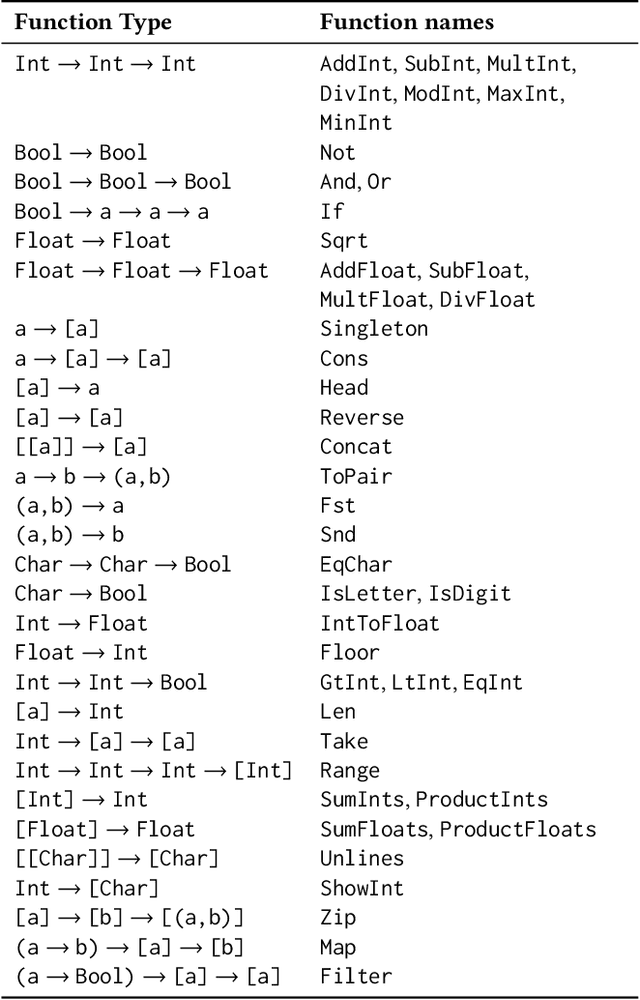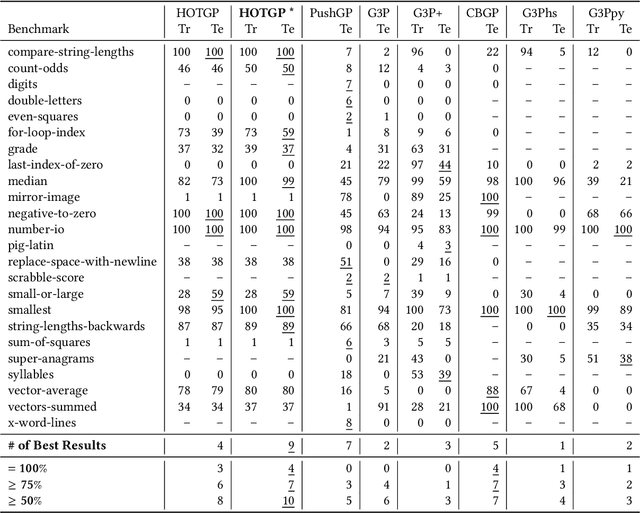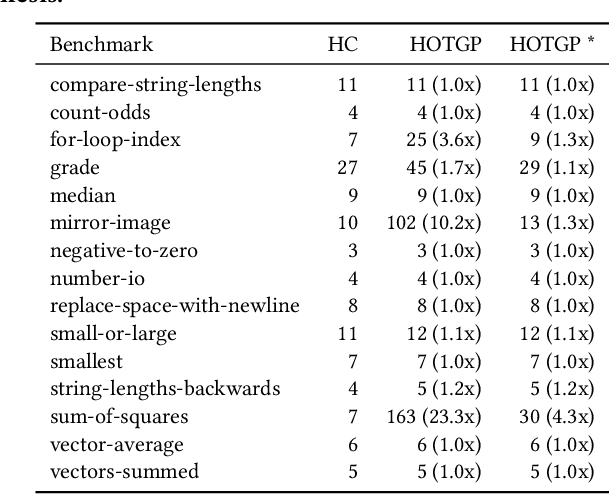Emilio Francesquini
Origami: (un)folding the abstraction of recursion schemes for program synthesis
Feb 27, 2024Abstract:Program synthesis with Genetic Programming searches for a correct program that satisfies the input specification, which is usually provided as input-output examples. One particular challenge is how to effectively handle loops and recursion avoiding programs that never terminate. A helpful abstraction that can alleviate this problem is the employment of Recursion Schemes that generalize the combination of data production and consumption. Recursion Schemes are very powerful as they allow the construction of programs that can summarize data, create sequences, and perform advanced calculations. The main advantage of writing a program using Recursion Schemes is that the programs are composed of well defined templates with only a few parts that need to be synthesized. In this paper we make an initial study of the benefits of using program synthesis with fold and unfold templates, and outline some preliminary experimental results. To highlight the advantages and disadvantages of this approach, we manually solved the entire GPSB benchmark using recursion schemes, highlighting the parts that should be evolved compared to alternative implementations. We noticed that, once the choice of which recursion scheme is made, the synthesis process can be simplified as each of the missing parts of the template are reduced to simpler functions, which are further constrained by their own input and output types.
HOTGP -- Higher-Order Typed Genetic Programming
Apr 06, 2023



Abstract:Program synthesis is the process of generating a computer program following a set of specifications, which can be a high-level description of the problem and/or a set of input-output examples. The synthesis can be modeled as a search problem in which the search space is the set of all the programs valid under a grammar. As the search space is vast, brute force is usually not viable and search heuristics, such as genetic programming, also have difficulty navigating it without any guidance. In this paper we present HOTGP, a new genetic programming algorithm that synthesizes pure, typed, and functional programs. HOTGP leverages the knowledge provided by the rich data-types associated with the specification and the built-in grammar to constrain the search space and improve the performance of the synthesis. The grammar is based on Haskell's standard base library (the synthesized code can be directly compiled using any standard Haskell compiler) and includes support for higher-order functions, $\lambda$-functions, and parametric polymorphism. Experimental results show that, when compared to $6$ state-of-the-art algorithms using a standard set of benchmarks, HOTGP is competitive and capable of synthesizing the correct programs more frequently than any other of the evaluated algorithms.
 Add to Chrome
Add to Chrome Add to Firefox
Add to Firefox Add to Edge
Add to Edge